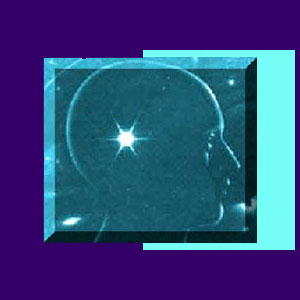
Asthma is a mysterious respiratory condition that controls the lives of millions of patients by restricting their ability to breathe properly or at all. Symptoms of this chronic or recurrent condition range from mild to severe, but can be terrifying in all forms. Some patients suffer for an entire lifetime, while others seem to grow out of the worst effects of their asthmatic conditions. Why patients are affected to different degrees and why some eventually recover completely, while others do not, are 2 of the great mysteries of this health crisis often discussed in medical circles.
This dialog examines this common respiratory illness from the mindbody perspective. We will provide evidence of a link between symptomatic flare-ups and their origins within the subconscious mind.
What is Asthma?
Asthmatic attacks are most often theorized to be brought on by some type of environmental or psychological stimulus. Affected patients suffer from a condition that causes their airway to inflame and close up. This constriction causes the patient to suffer coughing, wheezing and general shortness of breath.
In some cases, the patient will not be able to breathe at all and may require emergency medical intervention. Asthmatic attacks can be serious and can even sometimes be fatal. In between symptomatic occurrences, most patients lead completely normal lives.
Causes of Asthma
Asthmatic attacks can be caused by several physical reasons depending on the specific sensitivities of the individual patient.
Here are some of the leading suspected causes: vigorous exercise, allergies, drastic temperature change, smoking, respiratory infections, common colds and emotional stress.
Psychological repression and conscious emotional stress are two of the main contributors to asthmatic suffering. Identical physical triggers for attacks do not apply to all patients, but psychosomatic causes seem to be almost universal.
Respiratory Treatment
A common treatment option is identifying probable physical causes and eliminating exposure to these risk factors. This is fine for some factors, such as cigarette smoke and allergens, but does not work as well for other onset triggers, such as exercise. These prohibitions might decrease the risk of an attack, but have other negative side effects, especially on a developing youth.
Pharmaceutical treatment is very common, including preventative medications and inhalers. Some of these medicines have side effects, so a complete evaluation of all risks should be thoroughly understood prior to beginning treatment.
Alternative therapies such as exercise and chiropractic have also had good results in treating asthmatic conditions. Personally, I have found martial arts to be an excellent exercise program for the prevention and elimination of recurrent symptoms.
Mindbody Variant of Asthma
This respiratory condition is often a misdiagnosed psychologically induced pain syndrome. These are health issues that are certainly worsened through environmental conditions, but the initial sensitivities are often created by a psychological process.
Asthmatic patients who can learn to understand their subconscious and control their emotional stress have far fewer attacks than patients that have never used knowledge therapy. Some patients have even completely cured the condition using no medication whatsoever.
I had one asthmatic student who loved the martial arts and tried so hard in training. He was hindered by his condition, but had the heart to stay with the program. I learned so much about this health issue simply to help this one student. I even met with a couple of his doctors to discuss risks and benefits of his training. Well, this student grew from a weak boy into a confident and strong teen in a few years. By the time he was 17, he was completely free from asthmatic attacks. He continuously studied martial arts and together we discussed the psychology that made his condition worse.
When I see him now, it is difficult to believe the transformation he has accomplished. I am so proud of him and so confident that asthma can be overcome with little or no medical treatment.




